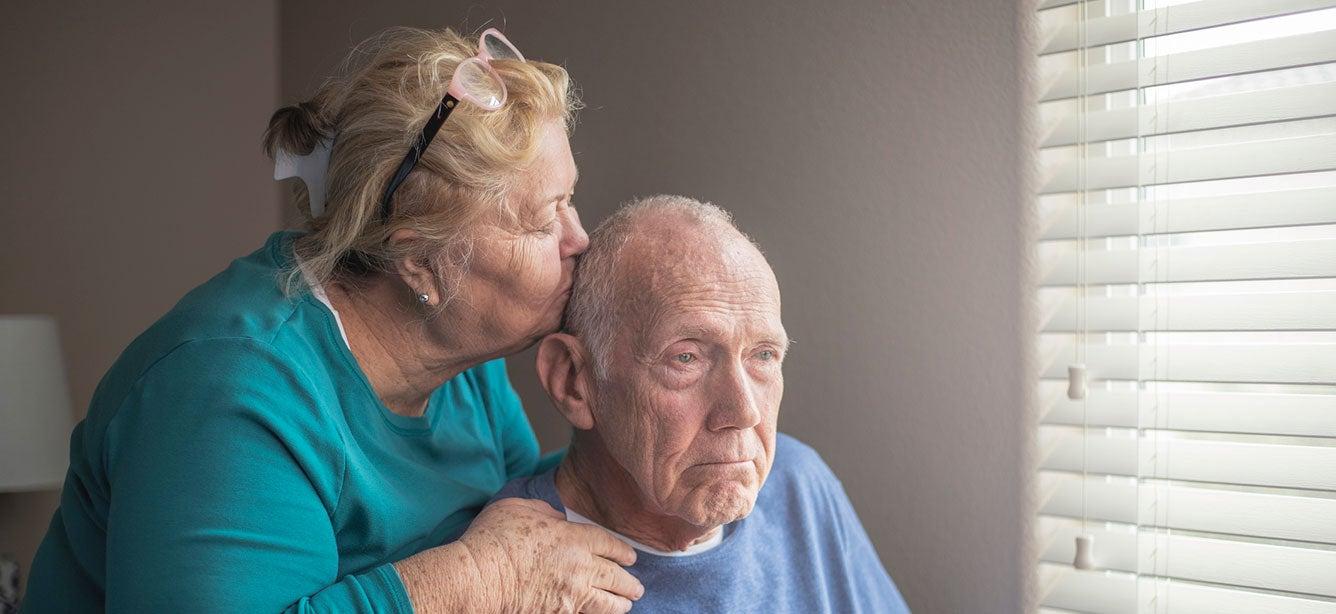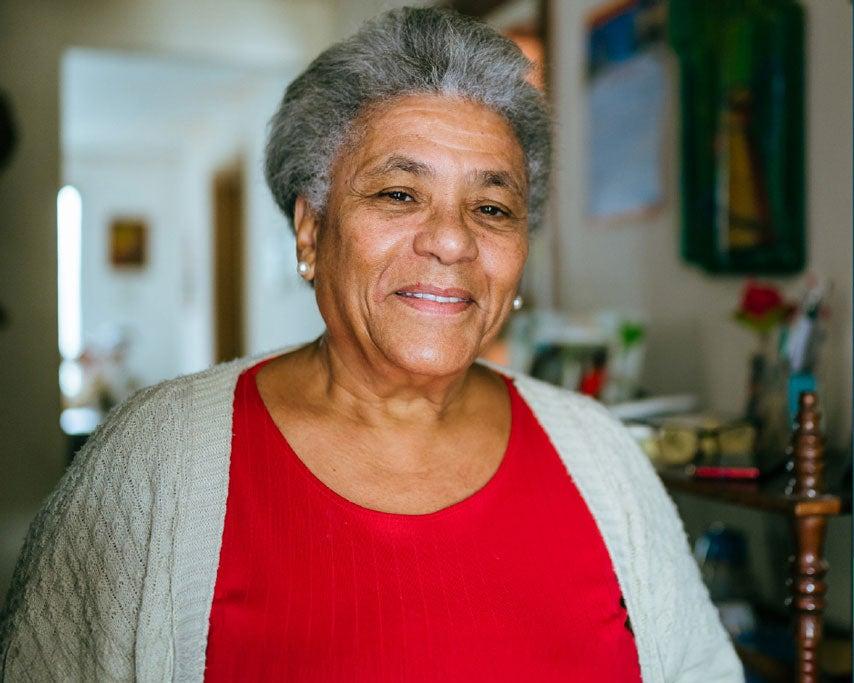What Dementia Caregivers Should Know: Advice From Someone Who's Been There
4 min read

Related Topics
When my father-in-law, Rodger, came to live with us, I didn’t know he had been showing signs of dementia for years. Yes, he was quirky and repeated the same stories over and over. He avoided social interaction and was dependent on his wife to assist him with many activities of daily living. He dressed and fed himself but was unable to drive or make rational decisions. His main pleasures in life were eating and going for long walks through his neighborhood. When not doing that, he spent his day watching vintage programs or world news on television.
Dementia, including Alzheimer’s Disease, Lewy Body Dementia, FTD, Vascular Dementia, and its many other forms is a devastating, long-term, fatal brain disease. Because it is often perceived as merely a memory problem, many people step into the role of caregiver not understanding how complex the disease is or how difficult it can become to respond to behaviors related to dementia. I know because I was one of them.
When my mother-in-law passed away and people asked what was going to happen to Rodger, my husband and I assured them he was coming to live with us. We had plenty of room. We had already planned for the time when one or more of our parents were no longer able to live on their own. We expected some difficult days, but we were ready to face each challenge as it arose. I lovingly and unknowingly walked into a situation I did not understand, and that is why I urge you to do as I say, not as I did.
Do these five things before becoming caregiver for somone with dementia
1. Learn as much as possible about dementia before the need for caregiving begins.
If, like me, you go into the situation not understanding the complexity of the disease, the confusion and stress on you and the person in your care can result in turmoil affecting entire the entre family.
2. Hold a family meeting to create a care team.
In-home primary caregivers are on call 24 hours a day, seven days a week, often for several years, resulting in their becoming isolated, overwhelmed, and exhausted. Also, 18% of spousal caregivers die before the person in care.1
Members of the care team can be responsible for:
- Handling financial and medical decisions
- Delivering a meal once a week
- Taking care of yard and/or car maintenance
- Shopping for groceries and picking up prescriptions.
- Coming by once week for an hour to allow the caregiver time to shower or nap as needed
- Providing planned respite time to allow the caregiver recharge
Being a primary caregiver without a team in place led to my having panic attacks, migraines, and hair loss. It resulted in undue stress on me, my husband, and my father-in-law.
3. Look into adult day programs for seniors in your area before you need one.
Offering options in the number of days a week you may choose to have your loved one attend, these day programs are staffed by trained and caring staff members who oversee stimulating, fun activities in a safe environment. People living with dementia still need social interaction and time away from their caregivers. Although they are often resistant to the idea at first, many seniors come to look forward to the activities and show slight improvement in their cognitive function for a time.
When Rodger refused to consider attending, I dropped the idea. Knowing what I do now, I wonder what enjoyment he may have missed out on and how relinquishing responsibility for a time each week could have helped me recoup some energy.
4. Attend caregiver conferences, in person or online.
Caregiver conferences are invaluable resources for caregivers. Learning why people with dementia say and do the things they do as the disease progresses will help you prepare and respond in a more supportive way. This will help you avoid some of the aggressive behavior that results in the need for increased medication or hospitalizations. Spending time with other caregivers for someone with a brain disease offers assurance that your feeling of doubt and occasional guilt are normal. Presenters provide advice on how to lessen these occurrences. Vendors offer information on support programs in your community. Many schedule regular online workshops presented by family and/or professional caregivers.
5. Join a caregiver support group.
It is often said about caring for someone with dementia: if you have not done it, there is no way you can understand what it is really like. This is so true. Members of the caregiver groups support one another and share ideas and resources, in many cases becoming lasting friends. These groups are scheduled in person and online and are open to caregivers from the time of early diagnosis through the inevitable progression.
Because I did not recognize what I needed and what I did not know, my time as a caregiver took a greater toll on me, the person in my care, and my family than it needed to. It also convinced me how important it is for everyone to prepare to care before the need arises and led me to become a caregiver consultant and educator.
Sources
1. Gaugler JE, Jutkowitz E, Peterson CM, Zmora R. Caregivers dying before care recipients with dementia. Alzheimers Dement (NY) 2018;4:688-93. Found on the internet at https://pubmed.ncbi.nlm.nih.gov/30581974/



